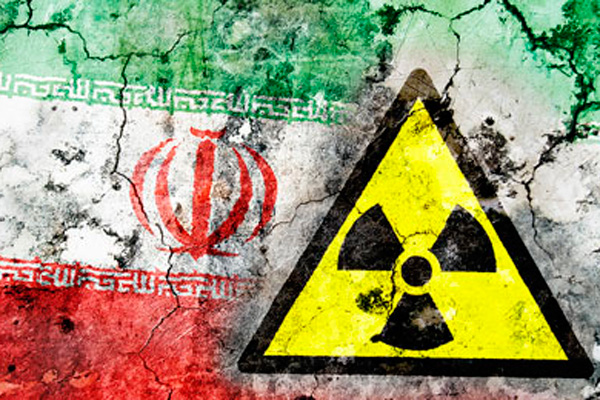
Iran meets deadline for investigation of nuclear past: UN
VIENNA, October 16, 2015
Iran has met a deadline to give the UN nuclear watchdog information it needs to assess whether Tehran sought to develop nuclear weapons in the past, the agency said on Thursday, a step towards carrying out a deal between Tehran and world powers.
The apparent progress reported in the longstanding UN investigation coincided with increasing Western disquiet over Iran's test of a ballistic missile this week in defiance of a UN ban, a move France said sent a disconcerting message.
It also followed an unusual broadcast by Iranian state television of footage of an underground tunnel crammed with missiles and launchers that appeared to signal Tehran's determination to expand its large missile inventory.
The Islamic Republic's missiles are viewed with concern by its Western-allied Gulf Arab neighbours given what they see as the risk of Tehran tipping missiles with nuclear weapons, should it ever develop any in future.
Iran has long denied that its enrichment of uranium for nuclear fuel has any military ends, saying it is for civilian energy only. But its restrictions on UN inspections and intelligence suggesting it has researched nuclear bombs in the past raised concern and led to international sanctions.
In July, Iran struck a deal with six world powers under which it must restrict sensitive aspects of its nuclear programme to help ensure they can never be put to bomb-making, in exchange for the removal of sanctions.
Under a roadmap agreement reached parallel to the Vienna deal, Iran had to provide by Thursday the cooperation necessary for the International Atomic Energy Agency (IAEA) to complete an assessment of Iran's nuclear work by December 15.
"In the period to October 15, activities set out in the 'road-map for the clarification of past and present outstanding issues regarding Iran's nuclear programme' were completed," the IAEA said in a statement.
The Vienna-based watchdog added that it would provide its assessment by December 15, on schedule. A spokesman for the IAEA declined to elaborate on Thursday's statement.
The IAEA said last month it had sent Iran questions on ‘ambiguities’ in its submissions to the agency. Cooperation with a view to resolving those questions is a pivotal aspect of what Iran had to supply by Thursday.
ASSESSING SAMPLES TAKEN AT MILITARY SITE
The investigation is now due to move into a phase in which the agency assesses the materials provided by Iran, including environmental samples at the Parchin military site, which IAEA Director General Yukiya Amano visited last month.
One of the questions the IAEA aims to resolve is whether Iran carried out high-explosives testing at Parchin applicable to making a nuclear warhead. Last month's visit was the IAEA's first access to Parchin in a decade.
On Wednesday, the last procedural hurdle to putting Iran's deal with major powers into effect was cleared when its Guardian Council, a top vetting body, ratified a bill endorsing the accord approved by a big parliamentary majority on Tuesday.
The vote was a victory for President Hassan Rouhani's government over hardline conservative foes of the deal and of any form of detente with the West after decades of antagonism.
The precise stance of Khamenei, a veteran hardliner who has the last word on all matters of state, is not known. To date, he has neither approved nor rejected the agreement, but has commended the work of Rouhani's negotiating team.
Despite barriers to the implementation of the deal falling,
Iran stirred fresh jitters with its test on Sunday of a new precision-guided ballistic missile, indicating advances in Iran's attempts to improve the accuracy of its missile arsenal.
As if to drive the point home, Iranian state television broadcast on Wednesday video from an Islamic Revolutionary Guards Corps base under a mountain filled with missiles on their launch vehicles with uniformed personnel standing nearby.
State media quoted a senior Revolutionary Guards general as saying Iran was completely overhauling its missile technology, replacing the current stockpile with newer weapons, and that the base shown on TV was one of many scattered across Iran.
French Foreign Ministry spokesman Romain Nadal said on Thursday the ballistic missile test was a clear violation of a UN Security Council resolution and sends "a worrying message ... to the international community".
The United States said on Tuesday it would raise the matter at the Security Council.
Ballistic missile tests by Iran are banned under Security Council Resolution 1929, which dates from 2010 and remains valid until the July nuclear deal goes into effect.
Once that happens, Iran will still be ‘called upon’ not to undertake any work on ballistic missiles designed to deliver nuclear weapons for a period of up to eight years, according to a Security Council resolution adopted in July. - Reuters







